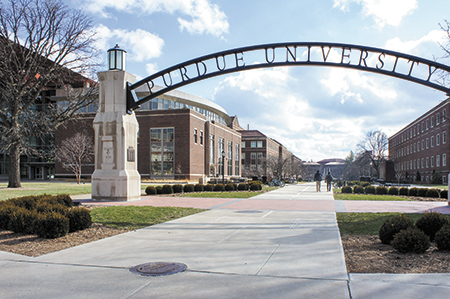Subscriber Benefit
As a subscriber you can listen to articles at work, in the car, or while you work out. Subscribe NowFollowing allegations that a Purdue University associate professor falsified documentation provided to the National Institutes of Health and Department of the Army, the university and the federal government have reached a pre-suit settlement requiring Purdue to pay more than $737,000 to resolve allegations under the False Claims Act.
Dr. Alice C. Chang is also barred from contracting or subcontracting with any federal agency for 10 years, according to the U.S. Attorney’s Office for the Northern District of Indiana.
According to the USAO, Chang — an associate professor of cancer biology and pharmacology in Purdue’s College of Veterinary Medicine, formerly named Chun-Ju Chang — falsified and fabricated data in two published papers and in 17 grant applications submitted to NIH and the Department of the Army between February 2014 and June 2020.
When the university received evidence from the U.S. Department of Health and Human Services calling into question the authenticity of research that Chang had included in submissions to federal agencies, Purdue cooperated and investigated the alleged misconduct, according to the USAO.
Based on its findings, Purdue agreed with the federal government that the funding was not deserved and should be returned.
The university has agreed to pay the government $737,391, which includes restitution and punitive damages.
“Academic integrity is the cornerstone of scientific research, and we take our commitment to protect U.S.-funded research grants seriously,” Indiana Northern District U.S. Attorney Clifford Johnson said in a statement. “Failure to be truthful on an application for U.S.-funded grants is a violation of the law and my office will continue to make it a priority to pursue cases to recover grant funds awarded through fraud.”
The HHS Office of Research Integrity has also entered into a Voluntary Exclusion Agreement with Chang banning her from any contracting or subcontracting with any agency of the U.S. for 10 years. As part of this agreement, she will also request that her published papers be corrected.
Please enable JavaScript to view this content.

